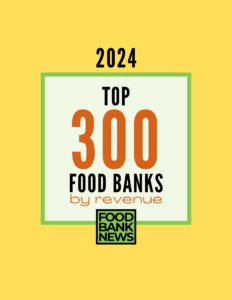Standards are hardly exciting. But if an organization wants to expand its reach and influence, they’re a necessity.
The Food is Medicine Coalition is hoping that the standard it just released around medically tailored meals will get more organizations to adopt high-quality, nutritious meals as a way to treat chronic health conditions. The standard is exclusively for nonprofits, and Meals on Wheels organizations and food banks are expected to be among the early adopters.
The standard arrives at a time when greater attention – and scrutiny – is being paid to the impact of non-medical interventions like food and housing on patient health. In that context, defining structures and procedures related to the delivery of nutritious meals is critically important, said Alissa Wassung, Executive Director of the Food is Medicine Coalition.

“It really felt like a responsibility for us to fully explain” what it means to provide medically tailored meals, Wassung said. “As food is incorporated into healthcare, our hope is that it’s incorporated in the fullest way possible, to really allow us as a country to take advantage of those benefits.”
Standards may seem routine, but they can also be deceptively effective. Consider the Healthy Eating Research standard, introduced four years ago to help food banks rank foods according to their nutritional status (see more here). The HER nutrition standard has helped food banks not only source more nutritious food, but also validate its nutritional value to outside stakeholders like healthcare providers. The HER standard has even provided a mechanism for food banks to persuade some food manufacturers to reformulate some of their products to be more nutritious in the first place (see more here).
While a big part of the Food is Medicine Coalition’s standard has to do with ensuring the nutritional quality of medically tailored meals, the eight pillars of the standard also cover aspects like how clients are enrolled into the program, food safety requirements, compliance with patient privacy rules, and the need for a registered dietician on staff. “Our intervention is so much more than a meal,” Wassung noted.
Only nonprofits will be able to apply for and receive an accreditation for meeting the standard. That’s even though many for-profit companies have gotten into the Food is Medicine market (see more here) by providing meals or nutritional tools to patients, either on behalf of insurance plans or to people who pay for the services on their own.
The focus on nonprofits is intentional, Wassung said, to ensure people who do not receive food benefits from Medicaid or private insurance plans can still get the meals they need. “We would like to see a future where these life-saving services are available to anyone who needs them, and they’re of the highest quality,” Wassung said.
For-profit companies have an alternative certifier they can turn to. In June 2023, an organization called Validation Institute launched FoodMed Certified to verify the effectiveness of various solutions related to nutritious meals. Founding members include the grocery chain Albertsons; the medically tailored meal provider Mom’s Meals; Uber Health, and Sifter Solutions, a shopping platform that matches dietary needs to specific products.

Food is Medicine Coalition worked throughout 2023 with SCS Standards, a nonprofit that develops certifications and standards mostly in the field of sustainability, to help synthesize its 40 years of medically tailored meals experience into a standard. It also leaned heavily on standards that already exist, for example, for food safety and HIPAA compliance.
Carrie Stoltzfus, Executive Director of Food & Friends in Washington, D.C., noted that it is important for the nonprofit community to have its own standard “because we’re always going to be serving unique populations that aren’t being covered by somebody else.” Food & Friends this month became the first medically tailored meals provider to announce its accreditation for the Food is Medicine Coalition standard.
Last year, Food & Friends delivered 1.9 million meals to about 5,500 people in its service area, which is a little bigger than the state of Connecticut. According to Stoltzfus, about 20% of its budget is funded through individual agreements with managed care organizations that pay Food & Friends to provide meals to their members. Another 30% of its budget is publicly funded, and 50% is from philanthropy.
As Medicaid 1115 waivers make it possible for public insurance plans to use funds to pay for healthy food (see more here), Stoltzfus expects access to medically tailored meals to expand. Rather than just getting patient referrals from hospitals and clinics, the Medicaid waivers will make it possible for Food & Friends to also get referrals from Medicaid insurance companies. “So if you don’t hear about us from your doctor, but you do hear about us from your Medicaid insurance plan, that’s great,” Stoltzfus said.
The ability of Food & Friends to eventually receive reimbursements from Medicaid plans will help make it a stronger organization, Stoltzfus noted. “It diversifies our revenue stream and enables us to serve more people,” she said. “Anyone who is getting paid for by their insurance plan means someone else I can take care of who’s not.”
Food is Medicine Coalition expects to certify 12 to 15 nonprofit meal providers in the first year with its initial target being established medically tailored meal providers on its advisory board. It will also look to graduates of its Food is Medicine Accelerator program, which trains organizations on the medically tailored meal intervention. Most of the 13 graduates of the Accelerator program so far are food banks.
The accreditation process should take about six months, and the cost to do it is tied to membership in the Food is Medicine Coalition. Once agencies are accredited, they will perform self-evaluations annually and undergo an audit every three years.
Ultimately, the Food is Medicine Coalition would like to see medically tailored meals become a reimbursable benefit through public insurance, Wassung said. In the meantime, her organization is focused on the more tedious aspects of making Food is Medicine more ubiquitous. “It’s our job to make it easy, especially for someone who is sick and hungry,” she said, adding, “These boring things matter. That infrastructure matters.” – Chris Costanzo
Like what you’re reading?
Support Food Bank News








